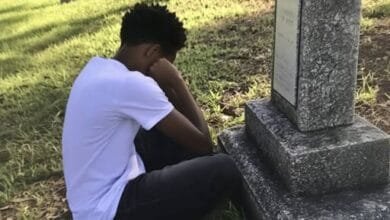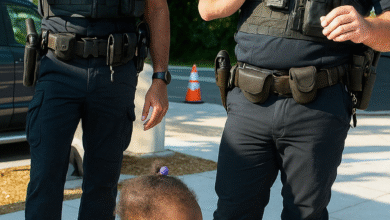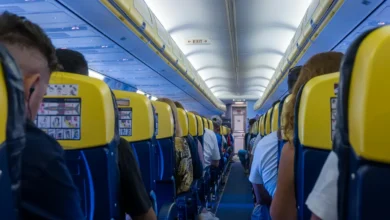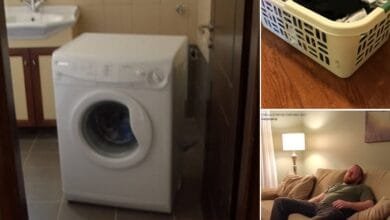When My Family and I Visited a Museum, We Found My Great-Grandfather’s Chest Just Sitting There.
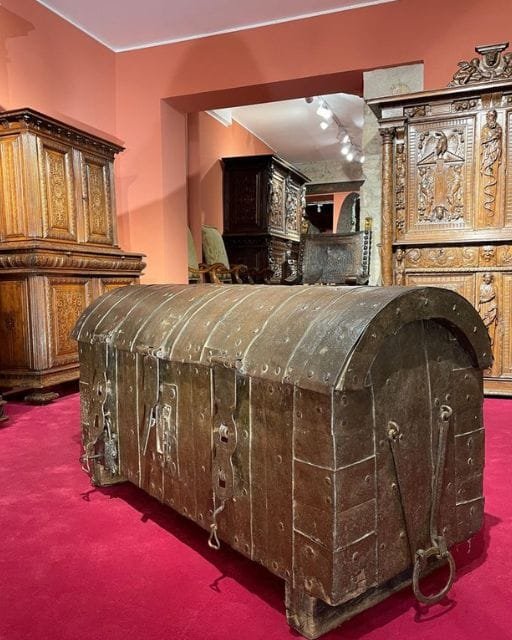
It was supposed to be a boring Sunday outing. One of those “let’s do something educational” family days where the kids complain about walking and my mom takes way too many blurry photos. We were strolling through the antique wing of this old downtown museum when my uncle suddenly stopped in his tracks.
He pointed, like he’d seen a ghost.
“That chest,” he said. “Nonno used to have that exact chest in his basement.”
At first, we all laughed. I mean, sure — all old wooden chests look the same, right?

But then he showed us.
Carved faintly on the back were three initials: E.F.B.
My great-grandfather’s initials. Exactly how he signed his letters. Exactly like they appeared on his old army dog tags.
We asked the museum staff about it. They said it had been found in the attic of an abandoned farmhouse outside the city and was donated anonymously years ago — no record of the previous owner.
My dad went pale. That farmhouse had been in our family. It was sold off in pieces after the war. No one had been back in decades.
The curator looked just as puzzled. He scratched his head and said:
“That’s strange. No one ever claimed it, and it came with almost no information. It’s just… been here.”
We all stood there for a moment, staring. My Uncle Tony was the first to approach. He ran his fingers along the engravings like he needed to be sure.
“This is it,” he whispered. “This is Nonno’s chest. But… how did it get here?”
The room felt still. My dad stayed quiet for a while, clearly deep in thought. Then he looked at Tony and said:
“We need to bring it home. There’s something important here. Something that’s been missing for a long time.”
“Missing? What do you mean, Dad?” I asked.
My dad hesitated. “There’s something about your great-grandfather we haven’t spoken of in years. He had a history with this chest… something he never told us.”
The air grew heavier. My mom asked, “What kind of history? What didn’t he tell us?”
Dad replied, “I’ll explain everything — but let’s get it home first.”
After a brief chat with the curator — who was more than happy to let it go — we carefully loaded the chest into our car. The ride home was quiet, each of us lost in our thoughts. What was inside? Why had it been hidden?
Back home, we all gathered in the living room around the chest. My dad’s hands trembled slightly as he opened the lid, the wood creaking with age.
Inside was dust, and a few items tucked into an old leather pouch. Faded photographs, worn books, and old letters. But beneath everything was a small, finely carved wooden box. Locked. No key in sight.
“That’s odd,” Tony said. “I’ve never seen this before. Looks like one of Nonno’s pieces. I wonder what’s inside?”
We all stared at it. There was something about the box — something that gave me goosebumps. It felt important.
“We need to find the key,” Dad said. “I don’t know why, but… I know this matters.”
We spent the evening sorting through everything in the chest. Photos of long-lost relatives. Old war medals. Letters describing his wartime travels. But the real change came when we opened the journals.
One stood out — leather-bound, yellowed pages.
I started reading the first entry aloud:
April 5, 1942. The mission was a success… but at what cost? The men are starting to question the orders. I don’t blame them. It’s too dangerous. There are things I wish I could forget. I just hope I make it back to my family.
Entry after entry hinted at something secret. My great-grandfather had been involved in a classified wartime operation — far beyond the quiet soldier we always thought he was.
Then we found something that changed everything.
In the back of the journal was a hand-drawn map. Coordinates. A big “X” marked in a forest near the old farmhouse — the very place where the chest was found.
“This doesn’t make sense,” Tony said. “Nonno never spoke of this. If this is what I think it is…”
Dad stood up.
“I didn’t want to bring this up, but it’s time. Your great-grandfather wasn’t just a soldier. He was part of a secret operation to recover valuable items. He never talked about it — because people were still looking for what he had hidden.”
The room went silent.
The man I’d always seen as quiet and kind had been protecting something. Something dangerous.
“So… what do we do now?” I asked. “Do we go?”
Dad looked at the map again.
“We have to. Whatever’s out there, we need to find it. But we need to be careful. This isn’t just about treasure.”
The next morning, we followed the map. After driving a few hours, we hiked deep into the woods. I couldn’t shake the feeling that we were being watched.
At the marked spot, we dug. Hours passed — then finally, we hit something solid.
An old metal box.
Inside were coins, gemstones, documents. And at the bottom — a letter.
My great-grandfather had written it:
“You may think this is luck. But remember — the greatest treasure isn’t what you find. It’s what you do with it. Use it well.”
In the end, we chose not to take the treasure. The true inheritance was the lesson: the value of family, of purpose, of doing the right thing.
The journey wasn’t about gold. It was about rediscovering who we are — and where we come from.
If this story touched you, share it. Someone out there might need the reminder:
The greatest treasures aren’t buried — they’re passed on.
